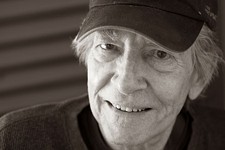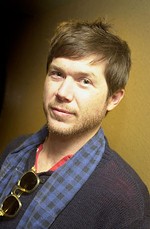Friend of the Family
The strangest figure in the JFK assassination is the most honest one
By Clay Smith, Fri., Jan. 25, 2002

When Ruth Paine, an Irving housewife, pulled into her driveway on November 21, 1963, Lee Harvey Oswald was in her front yard under the oak tree playing with his daughter Junie. His wife Marina was there too, and she quickly apologized to Ruth for his presence. For nearly two months, the arrangement had been that Lee would visit only on the weekends, and this was a Thursday. Marina was ostensibly living in the four-room house with Ruth, Ruth's two children, and her own two children, one newly born, because Ruth wanted to improve her Russian, an education that Marina, who was from the USSR, could provide. But Ruth was also a devoted Quaker living in a place where the Friends had to hold their weekly Meeting at a Seventh Day Adventist school by Dallas' Central Expressway. Ruth was lonely and needed Marina's friendship. Tomorrow a copy of the divorce petition Ruth had filed eight days ago would arrive in her mailbox. Tomorrow would not be a good day. When some law enforcement officials from Dallas rang her doorbell Friday afternoon, Ruth initially thought they were there to serve papers connected to her divorce. Then they and Marina pointed out to her that the rolled-up blanket Lee had stored in her garage had concealed the rifle used to kill President Kennedy.
To students of the JFK assassination, the strange life of Ruth Paine is yet another reason to insist that the truth is out there. Michael and Ruth Paine moved to Irving from southeastern Pennsylvania in 1959 because Michael went to work for Bell Helicopter, a new company in Ft. Worth. Though Michael didn't share Ruth's adopted Quaker faith -- he joined Dallas' First Unitarian congregation -- he was her soul mate, in an intellectual way, at least. As Thomas Mallon writes in Mrs. Paine's Garage: And the Murder of John F. Kennedy (Pantheon, $22), his quixotic meditation on the woman who became the Warren Commission's most important witness, the Paines' solidarity "helped the two of them to weather the unfamiliar mental climate that greeted them on the Texas prairie" but "the strain of trying to do the right thing -- in the world and toward each other -- imperiled Ruth and Michael's marriage from the start. As he took pains to be honest about his lack of feeling, she forced herself to be brave; both scarred themselves with candor and civility."
Ruth met the Oswalds in February of 1963 at a party in Highland Park hosted by a man who was in a madrigal singing group with the Paines. This is certainly one reason conspiracists refuse to believe that Ruth and Michael weren't in on the assassination. In fact, the Paines were odd characters for Texas. "It makes sense in a way," Mallon recently told the Chronicle. "Well, why was Ruth asked to go to that party? Because the host of the party knew of her interest in Russian, and why did she know the host of the party? Because they sang madrigals together. Madrigal singers, I'm sure in Irving, were pretty thin on the ground in those days."
Mrs. Paine's Garage is actually everything but an attempt to implicate Ruth. It is entirely unlike any other book about the assassination. Much of it reads like a good detective novel as Mallon lays out what happened in the months immediately before and then after the assassination. But Mallon has always been intrigued by the innocent bystanders at American historical events who get caught up in events much bigger than themselves. His well-known novel Henry and Clara (1994), is about Henry and Clara Rathbone, the couple whose lives were upended because they happened to be sitting in the theatre box with the Lincolns the night of his assassination. Like Janet Malcolm's The Crime of Sheila McGough (1999), Mrs. Paine's Garage is a probing investigation into a person who is so deliberate about being honest, so "morally interesting," as Mallon writes, that she seems fundamentally different from other people, who don't understand her and somehow conclude that she isn't talking straight with them. Mallon explains that
From the first hours of this first afternoon, it is Ruth's open-faced cooperation that stands out. As the police car headed from Irving to Dallas, an officer in the front seat wheeled around to ask her: "Are you a Communist?"
"No," she replied, "and I don't even feel the need of the Fifth Amendment on that one."
She remembers translating the question to Marina, who, sitting beside her in the back of the police car, was "very quiet at that point," and "not just because of the language difficulty."
In September of 1963, Ruth was finishing up a cross-country drive with her two children, visiting various relatives and friends, and she stopped in New Orleans to see the Oswalds, who were living there because Lee was looking for work in his hometown. (They also moved there because Lee had made an assassination attempt on right-wing Dallas resident General Edwin A. Walker.) Earlier, Ruth had tentatively suggested to Marina that she should return to Texas to have her second child, but she was mindful not to encroach upon Lee's status as the family's decision-maker. She addressed specific questions about hospital fees directly to Lee. Ruth ended up taking Marina back to Texas on September 23 (Marina "let out a cheer when she crossed the border into Texas, telling Ruth, somewhat surprisingly, that she thought of the state as her home"). On October 4, Lee showed up unexpectedly in Dallas. When Rachel was born on October 20, Ruth was at the hospital, but Lee was not. "Even today," Mallon writes, "Ruth doesn't blame him for this; he may have had a job, but he hardly had the money, and with the hospital's fast-discharge procedure for new mothers, Marina would be home in forty-eight hours." Mrs. Paine's Garage may fascinate with its detail about the "collision of innocent intentions and unforeseen enormities" in Ruth's life, but it is also an account of how good and evil collide with one another: "The goodness that would assure a selfless response to any evil unfolding before Ruth's eyes may have handicapped her, beyond the average person, for recognizing the evil wrapped in a sullen, enigmatic personality such as Lee Harvey Oswald."
Ruth initially hesitated when Mallon wrote her asking her if she'd be interested in talking about herself and how she survived being "grafted onto history" rather than just the assassination itself. Her eventual acquiescence means that there is now a book about her that is deeply personal and prescient, though sympathetic. I asked Mallon if Ruth was allowed to see a copy of the book before it was published. "This was not written as a cooperative venture with Ruth," he said. "I obviously depended on her for interviews, but," as could be expected, "Ruth gave me remarkably free rein." She directed him to the personal papers she had donated to the Quaker library at Swarthmore and "stayed out of my hair completely." The two of them are friends. "Ruth Paine would have been an interesting person had Lee Harvey Oswald never darkened her door." ![]()








